Claire Benning
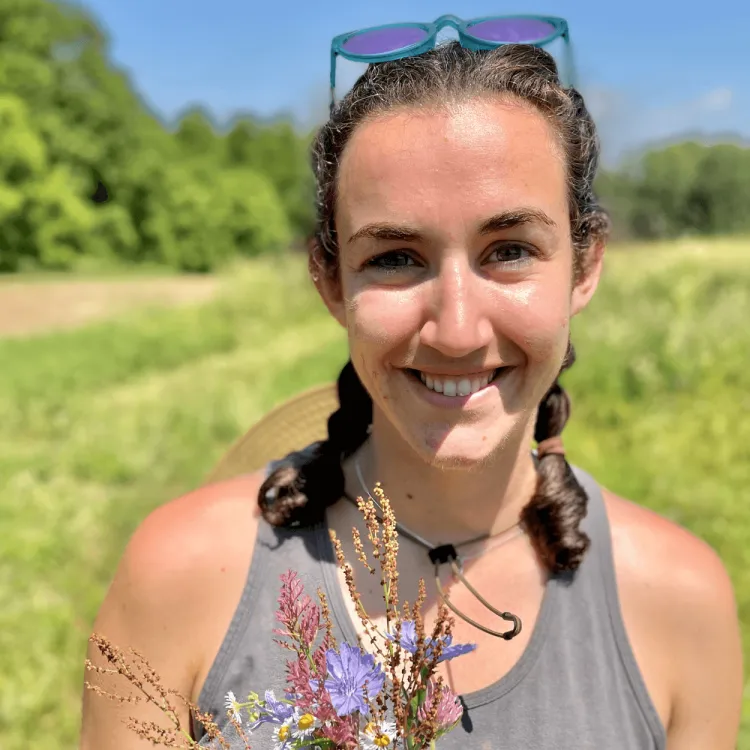
Claire Benning is a Plant and Soil PhD student working with Joshua Faulkner and Heather Darby. Originally from the Boston Area, Claire earned her Master's in Agroecology from the University of Wisconsin - Madison in 2023 where she researched the benefits of interseeding cover crops in organic corn systems in the Midwest. Before her time in Wisconsin, she was a science teacher at a high school in Connecticut for two years after graduating with her BA in Environmental Studies from Brown University in 2019. Claire is also a Research Specialist with UVM Extension and a member of the NWCS team where her work centers around the Discovery Acres project. This on-farm research project examines the effects of conservation practices on water and soil quality and greenhouse gas emissions in dairy production systems.
Liliana Bettolo
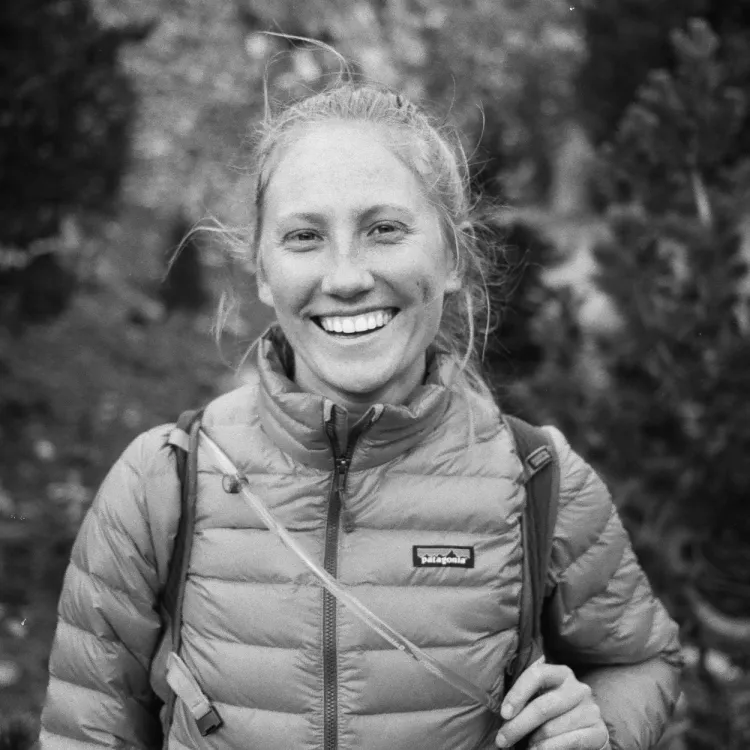
Liliana Bettolo is both a lover of local dairy and a motivated researcher interested in exploring how crop diversification can improve the environmental and social wellness of our agriculture system. Liliana leverages models at the watershed-level and farm- level to estimate the potential environmental impact of increased production plant-based protein foods (i.e. beans) in the Northeastern US, including indicators related to water quality, air quality, and soil health.
Emmanuel Botchway
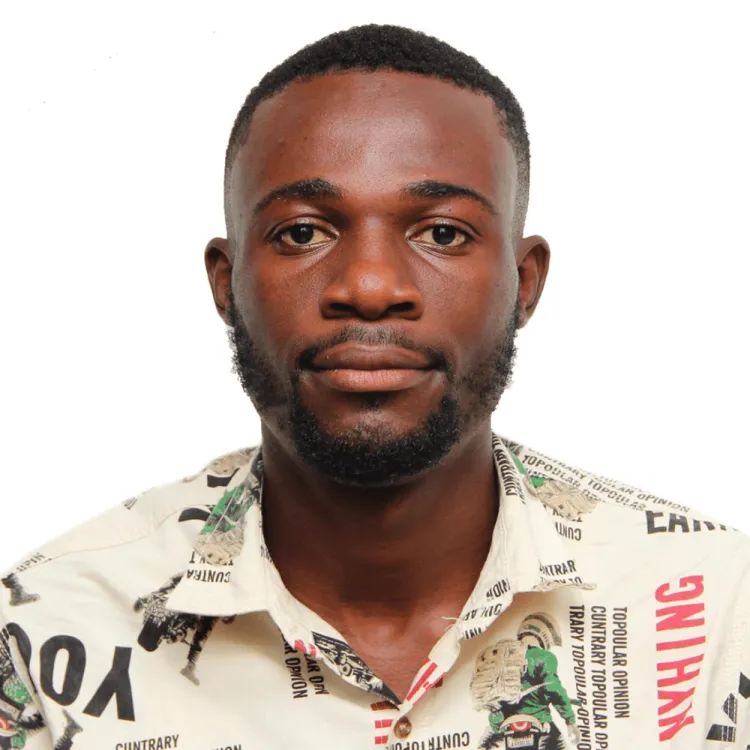
Doctoral candidate in Plant and Soil Science with Josef Gorres and Hao Chen Labs.
Andrea Campbell

Andrea Campbell is a Ph.D. candidate in the Department of Agriculture, Landscape, and Environment at the University of Vermont and a member of the Insect Agroecology and Evolution Lab. Her research explores the intersection of insect reproductive behavior, host plant ecology, and sustainable pest management. She is particularly interested in how insect biology and behavior can be leveraged to enhance pest management tools and support ecologically based farming systems. Drawing from the fields of plant–insect interactions, insect behavior, and applied chemical ecology, her work aims to develop pest management strategies that are both effective and environmentally responsible.
Andrea’s current research focuses on semiochemical-based control methods for the invasive swede midge (Contarinia nasturtii), a significant pest of Brassica crops in North America. By studying how these insects use chemical cues to locate mates and host plants, she seeks to design behaviorally informed management tools that align with agroecological principles. Andrea enjoys translating ecological insights into practical solutions for growers and is motivated by a desire to support agricultural systems that work in concert with insect ecology.
Blair Christensen
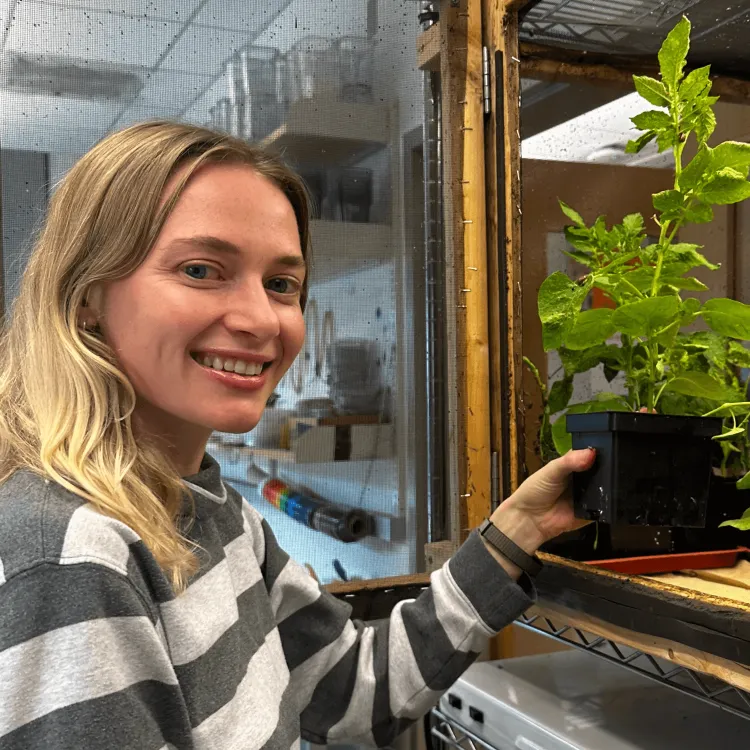
Blair is an entomologist and PhD candidate in the Chen Insect Agroecology and Evolution lab. Using the Colorado Potato Beetle as a model, her research focuses on how pest insects survive and thrive in stressful environments, particularly how they tolerate insecticides. Using a mix of experimental and bioinformatic approaches, she is trying to disentangle the relationship between stress, histone modification and metabolic insecticide resistance, with the goal of creating more targeted pest control with less ecological impacts. Blair is from Georgia, and before beginning her doctoral studies, she completed a masters in Biostatistics at GSU, an undergraduate degree in entomology at UGA, and worked as an epidemiologist for the Georgia Department of Public Health. She is passionate about teaching, pest management, data analysis, and overall making science more accessible.
Sandi Dincki
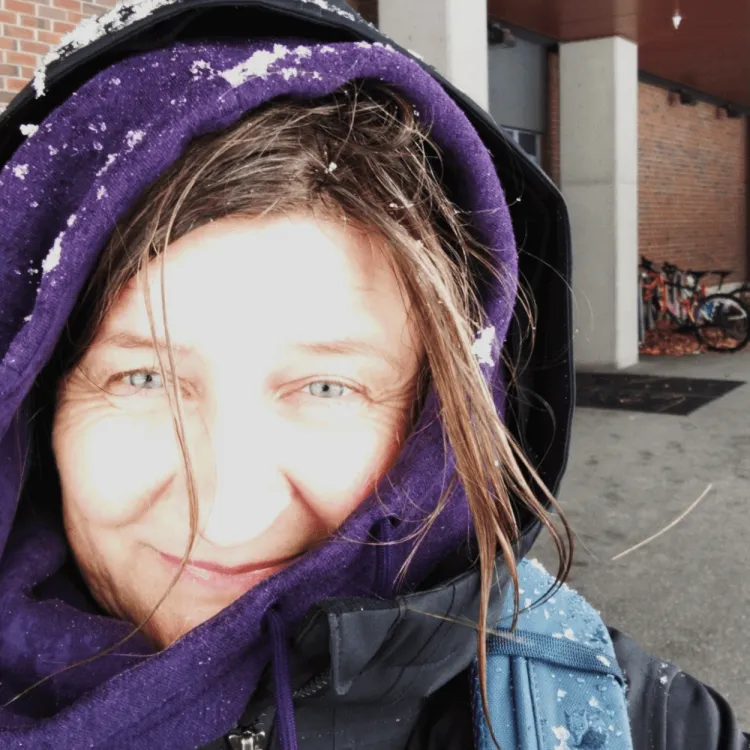
I am a graduate research assistant with the Crop Genetic Heritage Laboratory. I am interested in how legume crops, particularly faba beans, can be leveraged to prevent food insecurity and improve soil health. My research projects include the use of high tunnels for winter crops and the benefits of mixing species, genus, or varieties of legumes for summer crops.
Madelynn Edwards
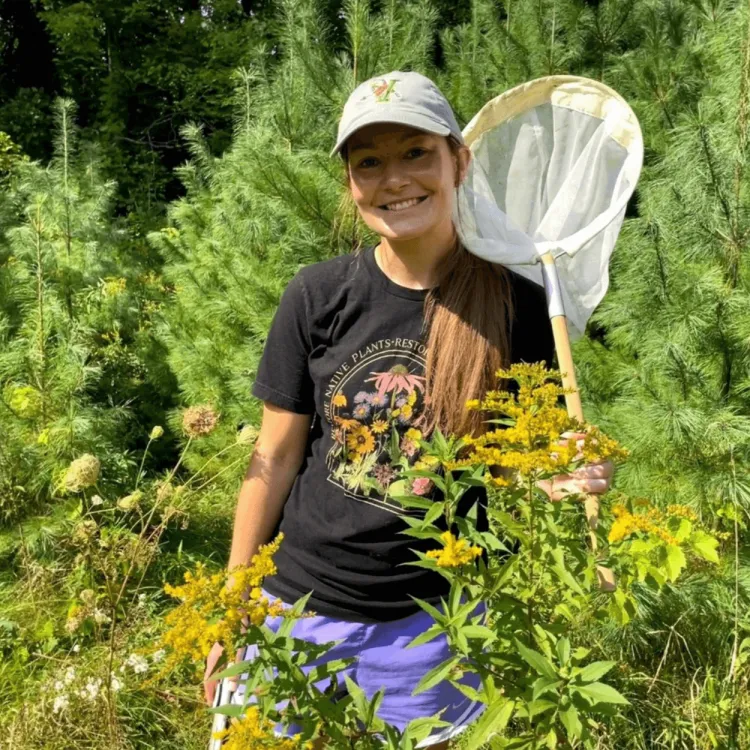
I am a PhD student broadly interested in drivers of change in invertebrate communities. I have a B.S. in Zoology from SUNY Oswego and a M.S. in Environmental Science and Ecology from SUNY Brockport. My work at the University of Vermont focuses on invasive earthworms, specifically Jumping Worms, and how they impact below-and above-ground insect communities, soil nutrient loss, and plant growth. I am a lover of all things bugs, and I enjoy spending my free time outside either hiking, kayaking, or gardening!
Jasmine Hart
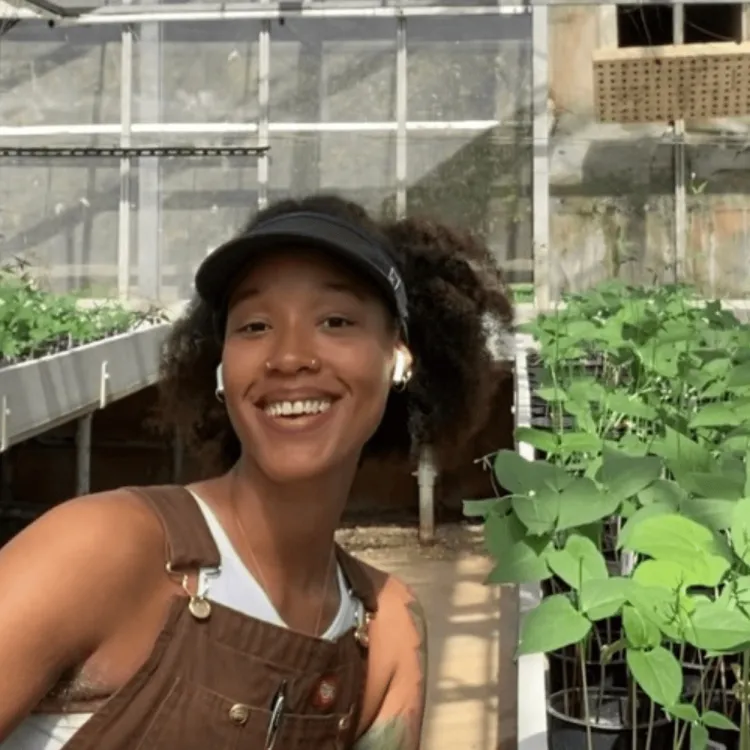
I am interested in plant-pathogen interactions and the genetics and breeding of climate resilient crops. My work focuses on tepary bean and the transcriptomic response under fungal infection and identifying seedling stage oomycetes disease resistance. Additionally, I am exploring participatory plant breeding as an application for my molecular work.
Laura Johnson
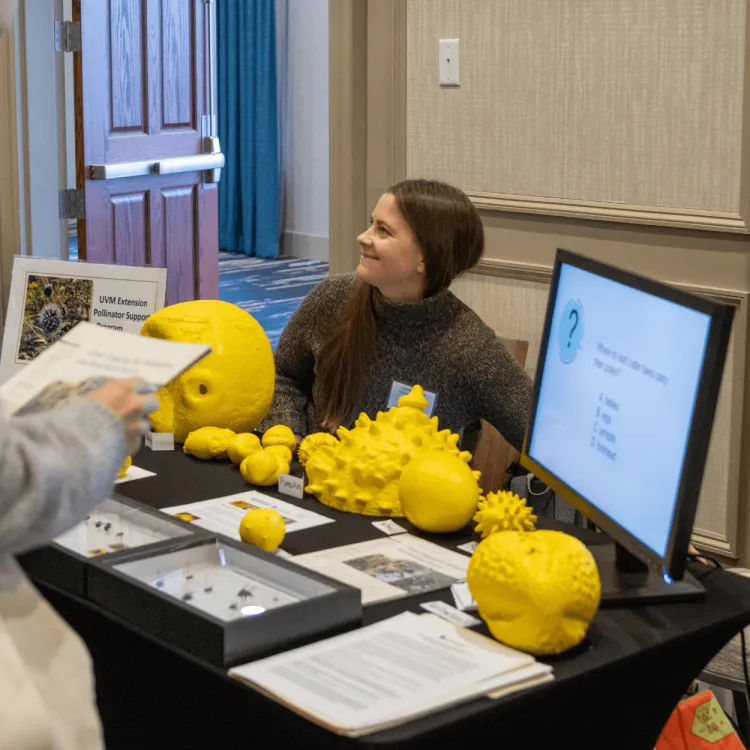
Laura grew up in Hartland, Vermont. She has a BA from St Lawrence University and a MS in Horticulture from New Mexico State University. In her graduate work, she is excited to focus on the intersections of farm viability, soil health, insect mediated pollination services of crops, and wild pollinators.
Alexander Kissonergis

I am a PhD student researching the rapid adaptation and evolution of an agricultural pest, the Colorado Potato Beetle (Leptinotarsa decemlineata). My work examines how stressors, such as insecticide exposure, impact genetic and epigenetic mechanisms. My goal is to uncover mechanisms of rapid adaptation and contribute to the development of sustainable pest management strategies.
Bailey Kretzler
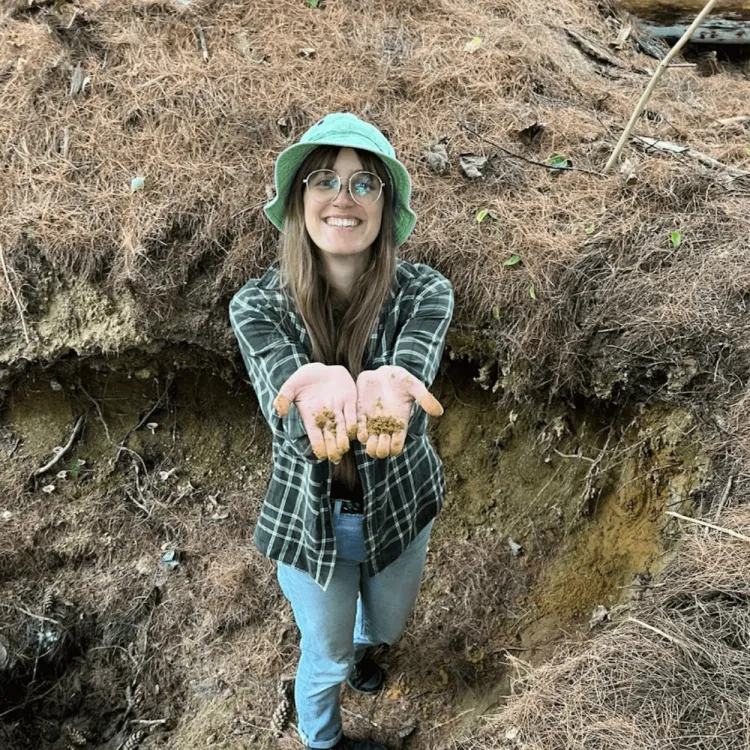
I study plant-soil-microbe interactions in agriculture systems that co-cultivate two or more crop species. More specifically, I am interested in the impact of specific combinations of crop species and varieties on soil microbial communities. We can then utilize our understanding of these dynamics to breed crops suited to these systems.
Niloofar Layegh Nikravesh

I’m Niloofar Layegh Nikravesh, originally from Iran. I’m currently pursuing my PhD at the Crop Genetic Heritage Lab under the supervision of Dr Eric von Wettberg. My academic path has been quite international: I earned both my bachelor’s and master’s degrees in Soil Science-Soil Physics and Conservation in Iran, and later completed a second master’s in Geo-information Science and Earth Observation with a minor in Natural Resource Management at the University of Twente (ITC) in the Netherlands.
In my PhD, I study how soil compaction influences the root system architecture (RSA) of mungbean. Using high-throughput, image-based root phenotyping, I generate large and complex datasets. By applying machine learning and big-data analytics, I aim to identify stress-resilient root traits and model how roots adapt to challenging soil environments. This approach not only deepens our understanding of root–soil interactions but also informs soil management, breeding programs, and strategies for sustainable crop production under environmental stress.
Outside of research, I try to keep a healthy balance through different interests. I’m a foodie who enjoys exploring new cuisines and local food cultures—especially while traveling, which is one of my favorite ways to experience new perspectives. I also enjoy hiking, baking, staying active through fitness, listening to good music, and unwinding with a movie.
Bethany Pelletier

Bio: Bethany Pelletier is a PhD candidate in the Agriculture, Landscapes and Environment department in CALS. Her research focuses on improving IPM resources available for sustainable winegrape production in New England. Bethany is passionate about university extension and prioritizes research that will directly impact the livelihoods of local farmers.
During her graduate research, Bethany employs both qualitative and quantitative methods to gain a well-rounded perspective of her research question. Her current work assesses the efficacy and compatibility of biopesticide products in the unique climate of the northeast. She uses both field and laboratory trials to examine how living biopesticide products are affected by a realistic vineyard microclimate.
Publications
Pelletier, B., & Bradshaw, T. L. (2023, April). Experience and understanding of concepts surrounding natural wine in Vermont. In III International Symposium on Beverage Crops 1387 (pp. 39-48).
Pelletier, B., & Bradshaw, T. L. (2023, April). Biorational pesticide efficacy in northern New England vineyards. In III International Symposium on Beverage Crops 1387 (pp. 269-276).
Zachary M. Smith
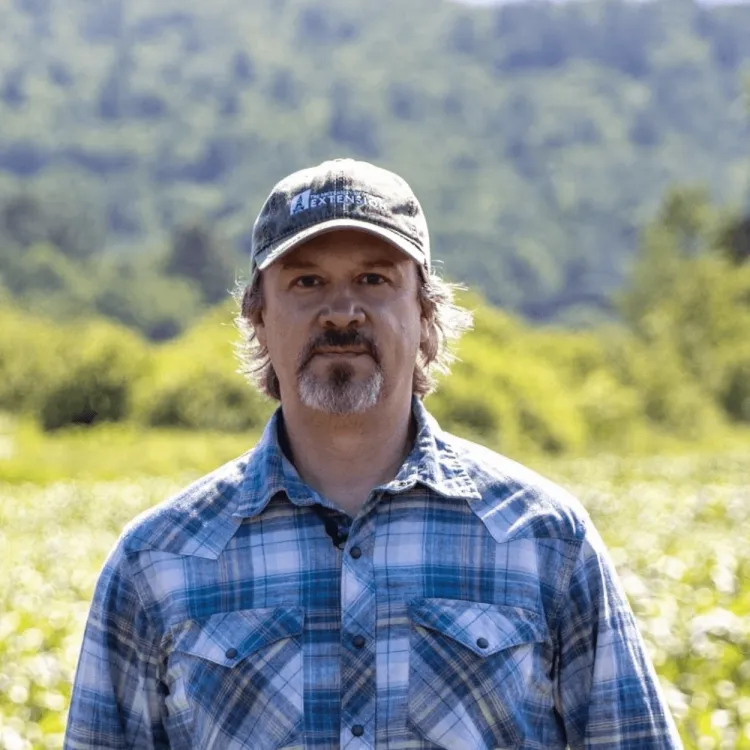
Zac is a PhD student specializing in agroecology and community health, with a focus on the situation of farmland ownership succession in Vermont, Ecuador, and Puerto Rico. He works as an Agricultural Business Educator at UVM Extension, directly advising farmers on business development, ownership transitions, and ecological sustainability.